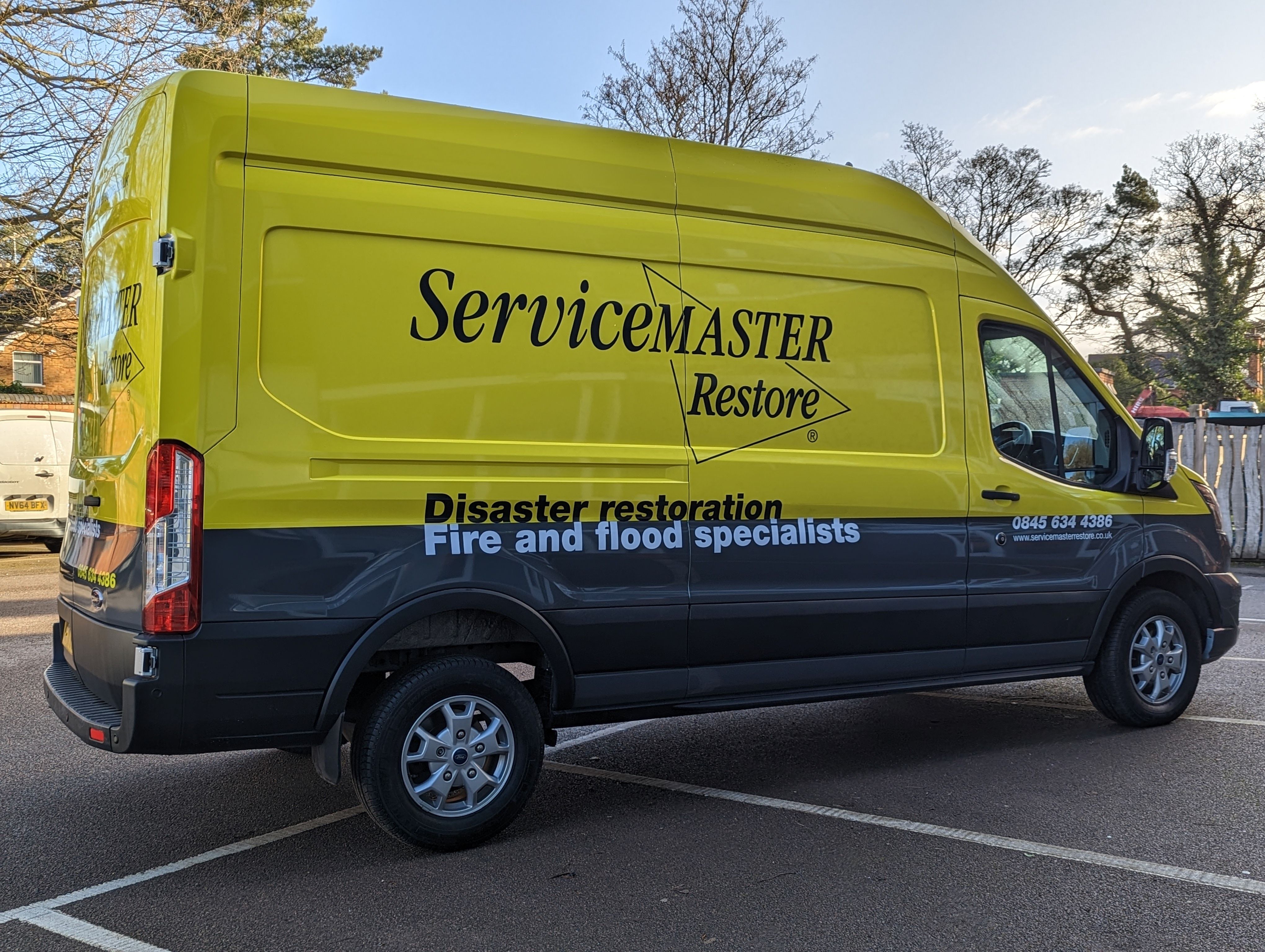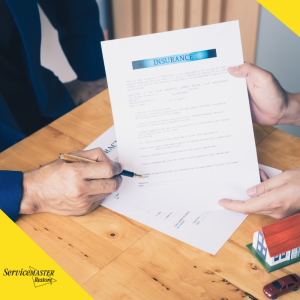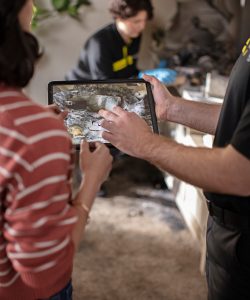
How to know when to claim on restoration work on your property
When the unexpected happens, time is of the essence. Whatever the nature of the damage to your property, whether water and flood, fire and smoke or mould damage and vandalism, you need to be prepared to take the best course of action for the issue at hand.

In this blog post, the disaster restoration experts at ServiceMaster Restore, who regularly work with insurance brokers, loss assessors and adjustors to ensure swift and professional restoration work, walk you through the process of making an insurance claim for disaster restoration work and what to do when.
1. Stay Safe and Conduct a Damage Assessment
Once you are safe, your first step to determine when to claim on restoration work will be to assess the damage promptly and/or professionally. An early and thorough assessment of the damage will help you know what you’re dealing with to prevent further deterioration, especially with water or mould issues and ensure accurate cost estimates later on, which are crucial for insurance claims.
At this point, you may want to engage restoration experts to conduct an accurate assessment and perform cost estimates, as they are more likely to have the tools and expertise necessary to identify hidden damages to your property.
2. Make Contact
Whether your property is residential or commercial, the next step is to contact your building’s insurance company.
If you rent your property, inform your landlord about the damage, as they are likely responsible for the repairs. If you are the property owner, contact your insurance provider for any damage covered by your policy as soon as possible.
They are likely to advise you to take one of the following courses of action:
- Contact their approved disaster restoration company
- Send them photos for the insurance company to contact a disaster restoration expert
- Find and contact a disaster restoration company
Logging the Claim with your Insurer
In some incidents, like a flood or burst pipe, which often occur out of hours or during high-demand periods, your insurer may not be able to immediately assist you.
Many restoration companies like ServiceMaster Restore operate 24/7 due to the unexpected nature of the majority of disasters property owners face. Therefore, we’ll be able to assist whenever you need us. In this instance, log a claim with your insurer and utilise their approved contractors or contact a restoration company yourself.
At ServiceMaster Restore, we understand that this aspect of the claims process can often be what hinders essential restoration work from happening as quickly and effectively as it should. That’s why, with ServiceMaster Restore Plus, we have streamlined the claims process. A service that understands the diverse needs across sectors, ensuring that everyone gets a tailor-made experience with a hassle-free add-on to your insurer’s existing cover, offer or policy, which allows us to act quickly 24/7, ensuring rapid response times, reduced costs and an exceptional service.
3. The Claims Process

After the claim form and emergency repairs are done, your insurer may appoint a loss adjuster to investigate the cost of claims, the cause of the incident, and how much is covered by the insurance policy to agree on a cost.
A restoration expert will then likely provide a quote on restoration and reinstatement work for the property. This quote will then be sent to your insurer to agree on before work commences.
If you disagree with your insurer’s offer, utilise their complaints process if necessary.
When Not to Claim
There are a few reasons why claiming restoration work may not be in your best interest. Including…
1. Policy Limits
If the damage is extensive and estimated repair costs exceed the maximum payout under your insurance policy, you may instead consider a partial claim or paying for the remaining costs yourself.
Even if repairs are underway, if the policy limit has been reached, the insurance provider might refuse to cover further costs, like alternative accommodation (AA), even if the property remains uninhabitable.
Your insurance provider will assess individual circumstances to determine if a property is truly uninhabitable or unsafe, considering factors beyond the availability of basic amenities.
2. Lack of Coverage and Exclusions
Some policies might exclude certain types of damage, like certain events or to specific parts of the property. Be aware of any limitations or exclusions in your policy, as this may affect your ability to claim.
3. Qualifying Repairs and Specific Schemes

If the damage doesn’t fall under the scheme’s definition of a qualifying repair, e.g.:
- It’s beyond the cost limit
- The local authority isn’t responsible
Then you won’t be able to claim under this particular scheme.
Furthermore, if the repair is considered an improvement rather than a restoration to the original condition, it might not be covered under certain schemes.
4. Timing and Delays
When repairs take longer than expected and there are no undue delays caused by you, the insurance provider is likely to cover your alternative accommodation costs, even if the policy limit has been reached. However, if it is established that unnecessary delays were caused on your part, the insurance provider may appropriately refuse to cover additional alternative accommodation costs beyond the policy limit.
5. Third-Party Claims or Disasters
In certain situations, property damage may occur due to factors entirely beyond your control. If a third party is responsible for the damage, pursuing a claim against them could be the most effective course of action instead of relying on insurance. Additionally, if the property has been significantly affected by a natural disaster, considering rebuilding or renovating may be a better choice than attempting to restore it to its original state, particularly if the original structure is no longer feasible.
Need help navigating the claims process for disaster restoration?
At ServiceMaster Restore, we work closely with insurance companies to restore your property following most disasters, but if that aspect isn’t covered within your policy, we are happy to take on private cases.
No matter what disaster you’re facing, as a trusted provider for insurers across the UK, we’ll be on hand quickly to deal with the damage to your property.
Call 0845 762 6828 or 0800 021 3970 24/7 in an emergency, find your nearest ServiceMaster Restore business to see how we can help you today.
ServiceMaster Restore are sponsors of the 2025 Insurance Broker Awards.
Image: ServiceMaster Restore


